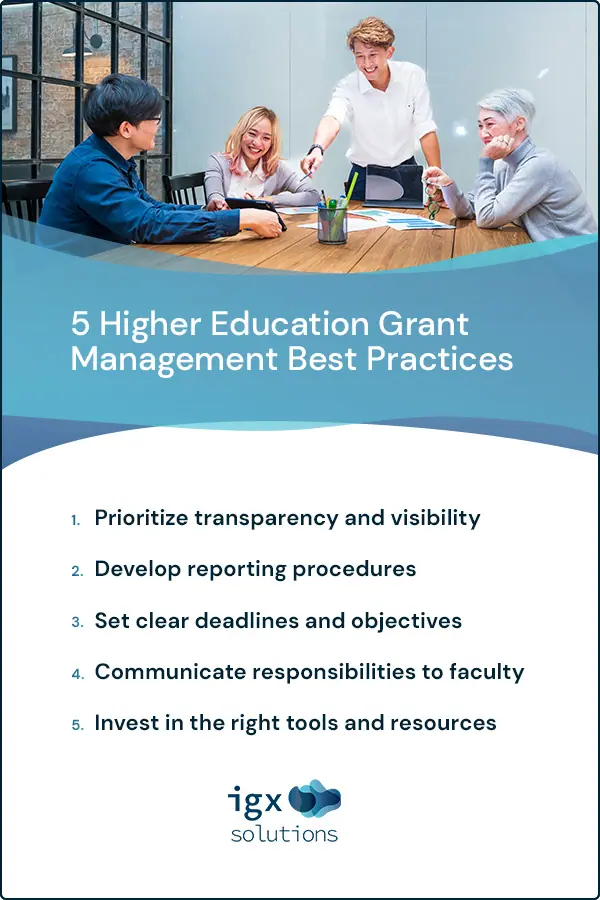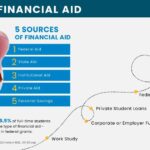Unlocking My Future: My Personal Journey with Higher Education Grants
I remember staring at that university acceptance letter, my heart swelling with a mix of excitement and a deep, unsettling dread. Excitement because my dream of pursuing higher education was finally within reach. Dread because, well, the cost. It felt like a mountain I couldn’t possibly climb, a barrier that threatened to keep me from the future I envisioned. My family worked incredibly hard, but the thought of adding a massive student loan burden to their plates, or mine, was overwhelming.
"How am I going to pay for this?" I whispered to myself, the paper crinkling in my trembling hands.
That’s when a kind guidance counselor, bless her heart, mentioned a term that would change everything for me: higher education grants. At first, I was skeptical. Grants? Wasn’t that just another word for scholarships, which felt incredibly competitive and out of my league? But she smiled, leaned in, and said, "Think of grants as free money for college, money you don’t have to pay back. And often, they’re not just about being the absolute smartest. They’re about need, about circumstance, about simply asking."
That conversation was the spark. It ignited a journey of discovery that not only helped me fund my education but also taught me invaluable lessons about persistence, research, and the incredible generosity that exists to help students like me. And today, I want to share my story with you, hoping it lights a similar spark.
What Exactly Are Higher Education Grants? (And Why They’re Not Loans!)
Let’s clear this up right away, especially if you’re new to the world of college financing, just like I was.
Imagine someone wants to help you achieve your dreams, and they’re willing to give you money to do it, with no strings attached when it comes to repayment. That’s essentially what a grant is.
- Grants are NOT loans: This is the most crucial distinction. Loans need to be paid back, often with interest. Grants? They’re gifts. Once you receive them and meet any basic conditions (like staying enrolled in classes), that money is yours to use for tuition, books, housing, or other educational expenses.
- Grants are different from scholarships (mostly): While the terms are sometimes used interchangeably, scholarships often focus heavily on merit – academic achievement, athletic prowess, artistic talent, or specific skills. Grants, especially the big ones, are frequently awarded based on financial need. This was a huge relief for me, as I wasn’t a straight-A genius, but I definitely had a financial need.
So, if you’re sitting there thinking, "College is too expensive," please, let that thought go for a moment. Grants are a powerful tool, a genuine helping hand designed to make higher education accessible.
Why Grants Became My Lifeline
For me, grants weren’t just money; they were freedom. They were the ability to focus on my studies, to engage in campus life, and to truly immerse myself in learning without the constant, gnawing anxiety of debt.
I saw friends working two or three part-time jobs just to keep up, their grades suffering, their energy depleted. I didn’t want that. Thanks to the grants I received, I could work a single, manageable part-time job, dedicate time to my coursework, and even participate in a few extracurricular activities that enriched my university experience immensely. It wasn’t just about paying bills; it was about thriving.
The Different Kinds of Grants I Explored (And You Should Too!)
When I started my search, I quickly realized there wasn’t just one type of grant. It was like discovering a whole hidden treasure map! Here are the main categories I learned about:
-
Federal Grants: These are usually the biggest and most common grants.
- The Pell Grant: This was the first one I heard about, and it’s a huge one for many students. It’s awarded by the U.S. government (if you’re in the U.S.) based on financial need. You apply for it by filling out the Free Application for Federal Student Aid (FAFSA). More on that crucial form later!
- Federal Supplemental Educational Opportunity Grant (FSEOG): This grant is for students with exceptional financial need and is administered directly by colleges.
- Teacher Education Assistance for College and Higher Education (TEACH) Grant: If you’re committed to teaching in a high-need field in a low-income area, this could be for you. It does have service requirements, though.
-
State Grants: Many states have their own grant programs to help residents attend college within the state. These often also require the FAFSA. I remember looking up my state’s higher education agency website and finding a few specific to students from my area.
-
Institutional Grants: These are grants offered directly by the university or college you’re applying to. They want you to attend their school, and sometimes they have their own funds to help make it affordable. Often, simply applying for admission and completing the FAFSA makes you eligible, but some might have separate applications. I got a significant chunk of my funding directly from my university!
-
Private and Non-Profit Organization Grants: This is where the real "digging" comes in, but it can be incredibly rewarding. Many foundations, corporations, community groups, and professional organizations offer grants based on a huge variety of criteria: your major, your ethnicity, your parents’ employer, your hobbies, even your last name! These are often smaller individual amounts, but they can really add up.
My Application Journey: Where I Looked and What I Did
My search for grants felt a bit like a treasure hunt. Here’s how I approached it:
-
The FAFSA: My First, Most Important Step.
You hear about it everywhere, and for good reason. The Free Application for Federal Student Aid (FAFSA) is the gateway to federal and often state and institutional aid. It asks for your and your family’s financial information. Don’t skip this! Even if you think you won’t qualify, fill it out. It’s free, and you never know what doors it might open. I remember gathering tax documents and sitting down with my parents to fill it out online. It felt daunting at first, but there were plenty of online guides and even help at my high school. -
Contacting University Financial Aid Offices.
Once I was accepted to a few universities, I didn’t just wait for them to tell me what I got. I proactively called their financial aid offices. I introduced myself, explained my situation, and asked, "Are there any institutional grants or scholarships I might be eligible for that I haven’t applied for yet?" Sometimes, just asking opens up possibilities. They know their own programs best. -
Online Search Engines and Databases.
I spent hours, sometimes late into the night, typing variations of "higher education grants," "college grants for [my major]," "grants for [my ethnicity/background]," "grants for [my state]" into search engines. I used reputable scholarship/grant search websites. These sites often allow you to create a profile and match you with grants you might qualify for. Be careful to stick to legitimate sites and avoid anything that asks for money to apply for a grant. Real grants don’t charge application fees. -
Community Resources.
I also looked locally. My high school counselor had a list of local community foundations that offered grants to students from our area. Sometimes, your local library, church, or community center might have information on these lesser-known opportunities.
The Application Process: Persistence is Key
Applying for grants wasn’t always glamorous. It involved:
- Filling out forms: Lots of them. Sometimes repetitive, but each one was a potential stepping stone.
- Writing essays: Many private and institutional grants required essays. This was my chance to tell my story, explain my passion for my chosen field, and articulate why I needed and deserved the grant. I wrote about my aspirations, the challenges I faced, and how I planned to use my education to make a difference. I made sure each essay was tailored to the specific grant and its mission.
- Gathering recommendations: Some grants asked for letters of recommendation from teachers, mentors, or employers. I made sure to ask well in advance and provided my recommenders with all the information they needed about the grant and my goals.
- Meeting deadlines: This was non-negotiable. Missing a deadline meant missing an opportunity. I kept a detailed spreadsheet of every grant I applied for, its requirements, and its deadline.
There were times I felt discouraged. I received "no" letters. I spent hours on applications that didn’t pan out. But I remembered my guidance counselor’s words: "Keep trying. The worst they can say is no, and the best they can say is yes."
The Moment of Truth: Relief and Gratitude
Then, one crisp autumn morning, an email arrived. It wasn’t a rejection. It was an acceptance – for a substantial institutional grant from my chosen university! A wave of relief, so profound it almost made me cry, washed over me. This, combined with the Pell Grant and a few smaller private grants I had secured, meant that my financial burden was significantly lighter. I could breathe. I could truly embrace my education.
That grant didn’t just pay for my tuition; it paid for my peace of mind. It allowed me to flourish, to engage, to learn without the suffocating weight of future debt. It gave me the freedom to choose a career path based on passion, not just on salary to pay off loans.
Your Turn: My Advice for Finding Your Grants
My story isn’t unique. Thousands of students find funding through grants every year. If you’re considering higher education, or you’re already enrolled and struggling with costs, here’s what I want you to take away:
- Start Early, Seriously Early: Don’t wait until the last minute. The FAFSA opens in October for the following academic year, and many other grant applications have early deadlines. The earlier you start, the more opportunities you’ll have.
- Fill Out the FAFSA: This is non-negotiable for federal and often state/institutional aid. Even if you think your family earns too much, fill it out. You might be surprised.
- Research Widely: Don’t just rely on one source. Check federal sites, state education departments, university financial aid pages, and reputable private scholarship/grant databases.
- Tailor Your Applications: Don’t send generic essays. Read the grant’s mission, understand what they’re looking for, and show them how you align with it. Tell your unique story.
- Be Persistent, But Don’t Get Discouraged: You won’t get every grant you apply for. That’s okay. Treat each application as a learning experience and move on to the next.
- Ask for Help: Your high school guidance counselor, college financial aid advisors, and even public library staff can be incredible resources. Don’t be afraid to reach out.
- Keep Excellent Records: Maintain a spreadsheet of every grant you apply for, including deadlines, requirements, contact information, and your application status.
Higher education grants are not a myth. They are real, accessible sources of funding that can transform your college experience and your future. They transformed mine. Don’t let the cost of education deter you from pursuing your dreams. Take that first step, do the research, tell your story, and unlock the possibilities that grants can offer. Your future self will thank you.


